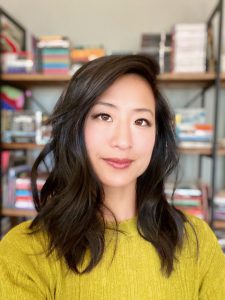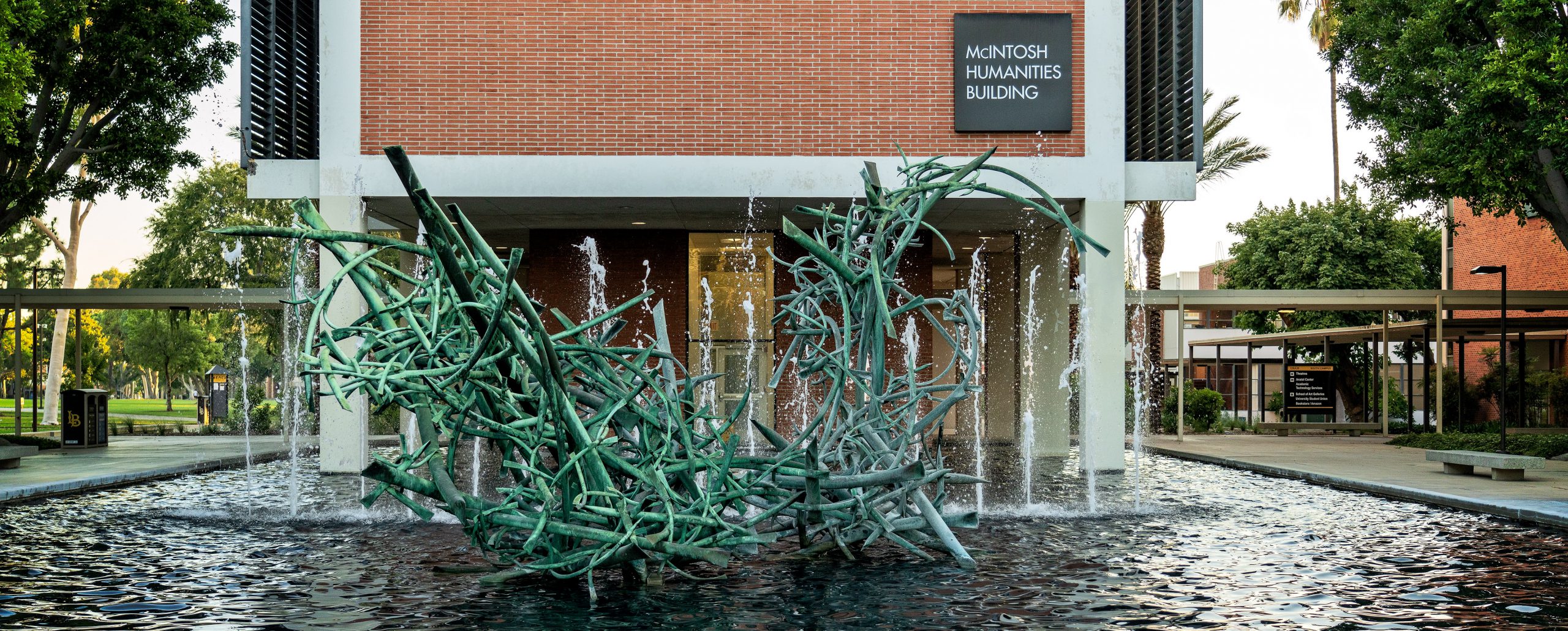CLA Welcomes Disability Studies Scholar to Faculty This Fall
September 14, 2020 An expert in disability studies and English literature, Dr. Crystal Lie uses an interdisciplinary approach that strives to understand how disability functions through the framework of literary texts. Less interested in pathology and cures, she sees disability as a sociopolitical identity that is rich and valuable for society.
An expert in disability studies and English literature, Dr. Crystal Lie uses an interdisciplinary approach that strives to understand how disability functions through the framework of literary texts. Less interested in pathology and cures, she sees disability as a sociopolitical identity that is rich and valuable for society.
This fall, Dr. Lie will bring that approach to CSULB when she joins the College of Liberal Arts as an assistant professor of comparative world literature. She says the opportunity to work with CSULB’s diverse student body attracted her to the campus.
“I come from a minority background, and I just really identify with first-generation students and working-class students,” she says. “It’s who I am and who I grew up with. It’s just nice to be able to go somewhere where that is the predominant student body population.”
Dr. Lie will be teaching Literature and Medicine and Comics and Graphic Novels classes in the fall. She says she hopes to spark students’ interest in the comparative world literature discipline by exposing them to new literary insights.
“Literature is simply about creating community, sharing knowledge and learning about different perspectives,” she says. “That’s also so integral to what teaching really is; it’s helping students find something that they identify with in the work that they’re reading and put that to use outside of the classroom.”
Before joining the faculty at CSULB, Dr. Lie taught English writing and disability studies classes at the University of Michigan, where she obtained both a doctorate and master’s degree in English language and literature. She also holds a master’s degree in humanities from the University of Chicago and a bachelor’s degree in English from UCLA.
As a disability studies scholar, Dr. Lie will play an integral role in the development of the new health humanities minor at CSULB that will be housed in the comparative world literature department starting next fall.
This new interdisciplinary minor aims to help students who plan to enter health or medical fields use skills they’ve cultivated in humanities courses. Dr. Kathryn Chew, chair of the comparative world literature department at CSULB, says Dr. Lie is an important new voice on campus with creative ideas for new courses and research projects that will inspire students.
“Dr. Lie brings a sensitivity of perspective to thinking about ‘health and the whole human’ that we believe will benefit all the CSULB students who are lucky enough to take a course with her,” Chew says.
Passionate about building up a presence in disability studies at CSULB, Dr. Lie says she is looking forward to developing a disability studies course crossed with sociology for the new health humanities minor that students will find both useful and interesting.
“Coming from my experiences as a daughter with a disabled father and being around elderly grandparents, you realize disability is everywhere around you and there are so many ways to think about it,” she says. “It gave me insight into new ways of thinking about disability as an identity.”
Initially interested in the science and pre-med fields as an undergraduate, Dr. Lie says a freshman writing course proved to be a watershed moment for her academic career as she began to fall in love with English as a discipline.
“It was a moment in which literature and storytelling really opened my eyes to seeing the world differently,” she says. “I kept taking English courses and would read works that kept giving me these sort of lightbulb moments where I would say, ‘I totally see that reflected in real life.’ I just didn’t know how to put that in words before.”
In recognition of her outstanding performance in the doctoral program at the University of Michigan, Dr. Lie received the Rackham Humanities Research Dissertation Fellowship in 2019. Awarded to a small number of doctoral students, the fellowship supports dissertations that are unusually creative, ambitious and impactful.
As part of her ongoing research, Dr. Lie is working on a book project to transform her dissertation into a monograph: “Reimagining Dementia and History: Contemporary Women’s Writing in the Age of Alzheimer’s.” The project examines how authors, drawing from their personal experiences as caretakers and witnesses to loved ones with dementia, think through dementia as an aesthetic, formal, and ethical resource to address histories of violence and to build solidarity across borders and marginalized voices.
In addition to teaching, Dr. Lie has published articles that use a disability studies lens on a trend of narratives that have emerged about dementia and the politics of memory surrounding historical trauma. Her most recent publication is “‘A Temporal Stuttering’: Writing Dementia and Disaster in Ruth Ozeki’s A Tale for the Time Being” in the Journal of Literary & Cultural Disability Studies. Her articles “Drawn to History: Dementia and the Armenian Genocide in Dana Walrath’s Aliceheimer’s (2016)” in Biography: An Interdisciplinary Quarterly, and “Crip Time as Space: Tracing Graphic Temporalities of Chronic Illness in Julia Wertz’s The Infinite Wait” in the Journal of Literary & Cultural Disability Studies, are both forthcoming.
Profile story by Kevin Bollman
